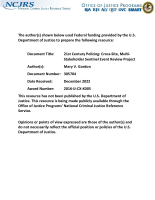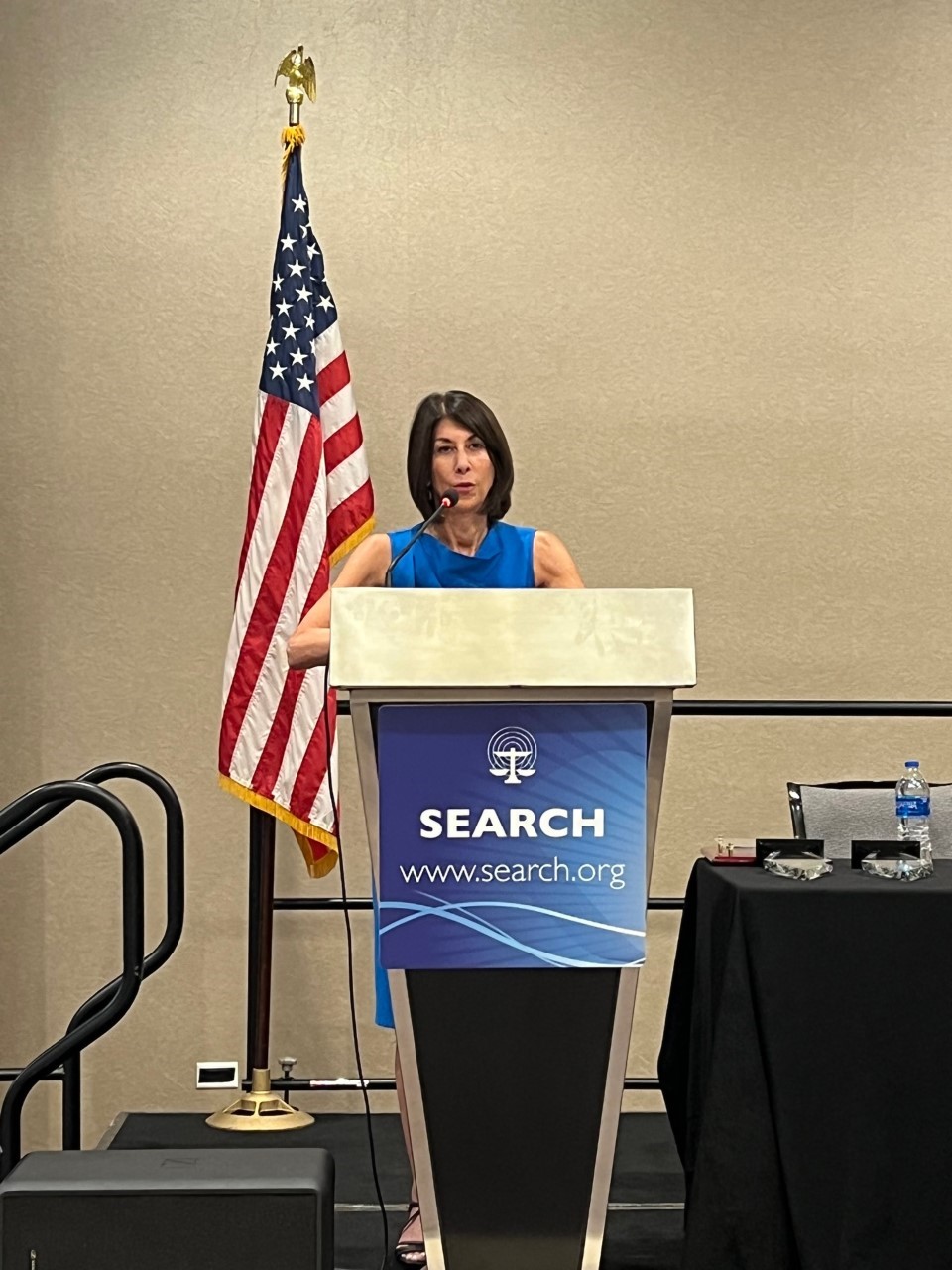Police agencies
Police stops to reduce crime: A systematic review and meta-analysis
Results from an effectiveness evaluation of anti-bias training on police behavior and public perceptions of discrimination
Occupational prestige and job satisfaction in high-stress public safety work
The Effects of Hot Spot Policing on Community Experiences and Perceptions in a Time of COVID-19 and Calls for Police Reform
Rural decline and policing of cannabis legalisation in Washington
Exploring the Impact of Station Dog Programs on Agency Wellness and Community Relationships
Police Supervision Redux: Examining Police Supervision in the 21st Century
NIJ LEADS
De-escalation Training: What Works, Implementation Lessons, and Taking It to Scale; Plenary at the 2023 NIJ Research Conference
Police use of force, while infrequently used, is a tremendous concern to public safety in the United States when officers employ it excessively or inappropriately, causing injury or death and eroding public trust in law enforcement. This plenary from the 2023 NIJ Research Conference describes the Integrating, Communications, Assessment, and Tactics (ICAT) de-escalation training program developed by the Police Executive Research Forum to guide officers in defusing critical incidents.
See the YouTube Terms of Service and Google Privacy Policy
Multiple Imputation for Missing Values in Homicide Incident Data: An Evaluation Using Unique Test Data
Welcoming Remarks by James K. Stewart, Director, National Institute of Justice, Before the Technology Assessment Program Advisory Council
Driving Down Gun Violence, Part 1
Three LEADS Scholars serving in different law enforcement agencies and positions discuss their experiences with identifying and implementing evidence-based interventions to reduce gun violence. NIJ Senior Advisor Dr. Tamara Herold hosts this conversation with guests Police Chief Cecilia Ashe (Milford Delaware Police Department), Chief of Staff Lieutenant Matthew Barter (Manchester, NH Police Department), and Analytical Services Manager Mr. Jason Schiess (Durham, NC Police Department).






